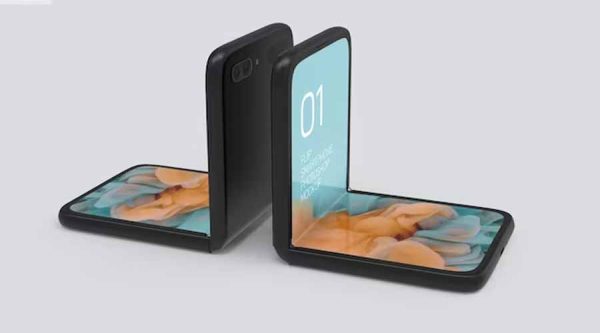
Motorola unveils AI-integrated mobile concept, showcasing technological advancements
Motorola, under the ownership of Chinese company Lenovo, spearheads innovation in the smartphone industry with a groundbreaking concept phone unveiled at the Lenovo Tech World ’23 event. This concept phone not only features a bendable screen but also incorporates advanced Artificial Intelligence (AI) capabilities, signaling a paradigm shift in the realm of mobile devices.
At the forefront of Motorola’s technological advancements is a highly sophisticated AI-powered personal assistant. This innovation represents a significant leap forward in the integration of AI features, offering users unprecedented control over various aspects of their devices, including the camera, battery, screen, and overall performance.
Introducing this concept of the phone reflects Motorola’s commitment to pushing the boundaries of what smartphones can achieve. By leveraging AI, the company aims to redefine the smartphone experience, positioning AI as not only a personal assistant but also as a powerful tool to enhance daily tasks, optimize performance, and curate more meaningful user experiences.
One of the standout features of the concept phone is its super-bendable screen, which introduces a novel way for users to interact with and carry their devices. The adaptive display seamlessly transitions from a standard 6.9-inch Android phone setup to a compact 4.6-inch screen when folded. This design innovation is reminiscent of the iconic foldable Motorola Razr, showcasing Motorola’s commitment to flexible hardware.
The AI functions integrated into the phone, collectively known as MotoAI, represent a significant stride in user-centric AI development. MotoAI is engineered to learn from user behavior, providing a personalized experience by answering queries, composing messages, and planning activities. Crucially, Motorola strongly emphasizes data privacy, ensuring that the AI functions operate securely within the confines of the device.
Amid the dazzling technological advancements, Motorola emphasizes the importance of data privacy. MotoAI ensures that sensitive user data stays securely on the device, mitigating potential privacy concerns associated with AI-driven features.
It is important to clarify that the showcased phone is a concept model, intended to illustrate potential ideas and capabilities rather than being a ready-for-sale product. This unveiling aligns with the broader industry trend, where major players like Google are also actively working on integrating advanced AI, such as the Bard language model, into virtual assistants like Google Assistant. The goal is to enhance capabilities, allowing virtual assistants to assist users in tasks ranging from planning trips to sending messages.
Motorola’s concept phone and its integration of AI features exemplify a forward-looking approach to smartphone development. While the showcased device is not yet available for purchase, its unveiling sparks anticipation and excitement for the future of smartphones, suggesting a trajectory where AI becomes an integral part of the user experience. As technology continues to evolve, the fusion of bendable screens and advanced AI capabilities holds the promise of redefining how we engage with and perceive mobile devices. Motorola’s bold exploration into this uncharted territory sets the stage for a new era in smartphone innovation, emphasizing the pivotal role that AI will play in shaping the future of mobile technology.



